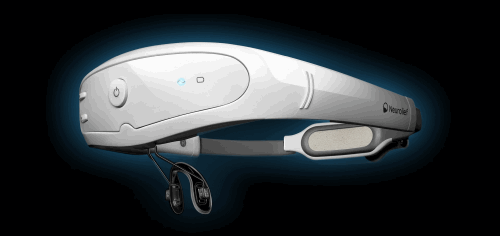Migraine Fighting Devices: Getting Smarter?
Devices designed to fight migraine continue to develop and build on one another. One example is the Relivion device.

Relivion uses the familiar neuromodulation that we’ve seen in other devices such as Nerivio. It looks similar to devices such as Cefaly. But let’s let the makers of the device explain what they’ve done to make it unique:
Relivion® is the first non-invasive multi-channel brain neuromodulation system for treating neurological and neuropsychiatric disorders. It offers precise, personalized care by delivering unparalleled stimulation to six branches of the occipital and trigeminal nerves via three adaptive output channels. This creates a cumulative effect by releasing neurotransmitters in the brainstem and modulate brain networks associated with control of pain and mood.
A new ecosystem for brain neuromodulation
So basically, this device can provide stimulation to various nerves in the head through various “channels”. This means that the neurostimulation can be much more customized for the patient. And for the disease.
You may have noticed that there’s no mention of migraine here. Instead – “disorders”, plural. That’s because it’s been designed from the start to even be customized for different issues, including migraine.
The study for migraine was presented in 2019 at the American Headache Society Annual Meeting, in a report entitled “First Non-invasive Combined Occipital & Trigeminal Nerve Stimulation Digital Therapeutics System for Treatment of Migraine”. The study compared a sham device with a working device, and measured patient response at 1 hour, 2 hours, and 24 hours. At each time interval, patients using Revilion for migraine were in better shape than the control group. For example, 43% of patients using the device were pain free after two hours (compared to 11% in the control group).
The other reason that this device is adaptive is that it can be controlled using a smart phone.
And what else could this be used for, besides migraine? Depression is the main other condition at the moment, which will also be good news for migraine sufferers with comorbid depression. But it’s also being investigated for use for insomnia and ADHD.
As investigation continues with this and other devices, patients will have more options for pill-free treatment, and maybe even treatment that will take care of more than one condition.
For more information, visit the official site of the makers of Revilion, Neurolief. The study mentioned above can be found in pdf format here.
